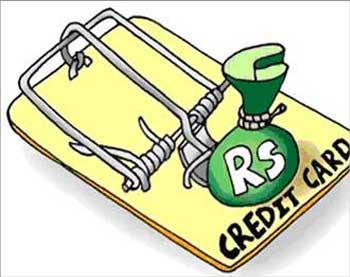 | « Back to article | Print this article |
How best to manage your money: 4 GOLDEN tips
Managing your money is always a tricky prospect. There are too many variables - domestic and sometimes, international as well - which impact the finances.
But for a regular investor, certain ground rules remain, and no matter how volatile or stable an economy is at a given time, these should be followed.
The options, in terms of instruments, are many. "In a developing country such as India, mutual funds and equity are the more popular investment avenues.
However, globally, there are plenty of opportunities available in the form of products, such as gold and silver exchange-traded funds, oil bonds and commodities," says Shiv Gupta, a Mumbai-based financial consultant.
He believes if an investor starts young, and knows his math and the kind of instruments he wants to play with, he can go ahead and plan his financial life.
Click on NEXT to read more...
How best to manage your money: 4 GOLDEN tips
Understand your money
Money is not just currency and coins.
According to dictionary.com, money is 'any article or substance used as a medium of exchange, measure of wealth, or means of payment'.
At the start of your own money management course, you need to ascertain your financial standing at that particular point in time, and then make decisions.
An evaluation of one's income, expenditure and saving sources will give a fair idea of the kind of 'money' you are dealing with.
Accordingly, make an investment decision. For instance, many people continue investing in their monthly systematic investment plans, even by borrowing, because there expenditure is high.
It is a sure way of getting into a debt trap.
Click on NEXT to read more...
How best to manage your money: 4 GOLDEN tips
Say no to 'plastic' money
At over 40 per cent rate of interest, it is a sure way of getting into deep trouble.
Those who manage their money smartly seldom need to resort to 'plastic' money to meet their requirements.
Credit cards, or 'plastic' money, are considered a bane, because people tend to get absorbed by the convenience factor.
Although companies sell credit cards aggressively, by claiming the card attracts no fee or charge for life, they do not disclose the underlying conditions that come attached with these.
Every credit card attracts a service charge, irrespective of whether or not one uses it.
Besides, once enticed by the 'easy' working of a card, an individual gets more involved with the relationship, which could turn 'toxic' if not kept within limits.
While a credit card is a helpful tool during exigencies, when used casually and carelessly, it can have a potentially damaging effect on one's financial health.
Click on NEXT to read more...
How best to manage your money: 4 GOLDEN tips
Make financial allies
When investing, a basic rule is risk embedded in the nature of a particular investment tool.
By principle, it means higher the risk, greater the return, and vice versa.
A midcap or smallcap stock may be a multi-bagger, but it could also lose you money, real fast.
Diversifying one's portfolio, or making different financial allies, will only help one capitalise on all the investment opportunities that come your way.
Click on NEXT to read more...
How best to manage your money: 4 GOLDEN tips
Long-term relationship
Stay invested is an oft-abused term. But it works.
Money invested and managed well will positively yield handsome returns, but only over time.
One needs to be consistent and responsible for one's money and spending habits.
Taking money for granted can prove to be detrimental not only in the immediate future, but also in the long term.
"Financial planning, if done with systematic precision, makes money work harder for an individual," advises Ayush Tibrewal, an advanced wealth manager at HSBC.





